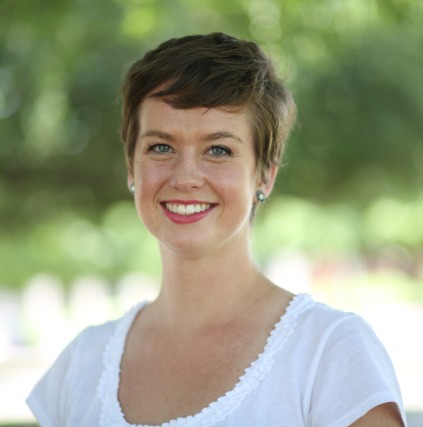Q&A With Baylor Fulbright Recipient Rachel Cliburn

Baylor University senior Rachel Cliburn of Long Grove, Ill., is one of five Baylor students and recent graduates who have been selected to receive the prestigious Fulbright Scholarship.
Follow us on Twitter: @BaylorUMediaCom
Contact: Lori Fogleman, (254) 710-6275
WACO, Texas (May 11, 2012) - Baylor University senior Rachel Cliburn of Long Grove, Ill., is one of five Baylor students and recent graduates who have been selected to receive the prestigious Fulbright Scholarship. A senior neuroscience major on a pre-med track, Cliburn will conduct research in neuropharmacology through a master's degree research program in neuropsychology at the University of Maastricht, in The Netherlands.
Baylor Media Communications recently conducted a Q&A with each of Baylor's most recent Fulbright recipients.
Baylor Media Communications: How did you find out that you had received a Fulbright?
Rachel Cliburn: I received an email informing me of the final decision. I was studying at the time, and reread the email just to make sure I had read correctly. I texted my friends and family and was so excited that I didn't know what to say when they called to congratulate me.
Baylor Media Communications: Why did you decide to apply for the Fulbright and why Maastricht in The Netherlands?
Rachel Cliburn: I had spent a semester in Maastricht in the fall of my junior year (2010) and really enjoyed my time there. While talking to Dean Vardaman about another scholarship, she realized that I had been to Maastricht and mentioned the Fulbright program. I was enthralled with the idea of being able to return to the city that I loved so much. The more I found out about the program there, the more Maastricht seemed to make sense.
Baylor Media Communications: What will you study/research there?
Rachel Cliburn: I'll be getting a research masters from University of Maastricht in Neuropsychology. I plan on performing my research in neuropharmacology--drugs that affect the brain.
Baylor Media Communications: Why did you decide to come to Baylor for your undergraduate study?
Rachel Cliburn: I knew that I wanted to move south in order to avoid cold Chicago winters. I wanted to major in Neuroscience, and Baylor has a great science program and beautiful facilities. I liked that Baylor is large enough to provide opportunities for its students, but not so large as to be overwhelming. I also liked how Baylor values the maturation of students' faith while maintaining a diverse and open environment. Getting a scholarship to come here certainly didn't hurt either.
Baylor Media Communications: What are your plans after Baylor and after the Fulbright?
Rachel Cliburn: I'll be attending Emory Graduate School in Atlanta for a PhD in Neuroscience. I've also received the Division Scholar Fellowship at Emory.
Baylor Media Communications: Who are some of the Baylor faculty members who helped you in your major, as well as your Fulbright application?
Rachel Cliburn: Baylor's Neuroscience faculty has brought me to where I am as a scholar today. Dr. Charles Weaver has been absolutely irreplaceable during my time at Baylor -- he has been a truly outstanding mentor. Dean Elizabeth Vardaman worked so hard on the students' behalf to put forward the best Fulbright applications possible. She excels at encouraging, advising and polishing the students as they navigate the application process. Baylor is lucky to have her.
Charles Weaver, Ph.D., professor of psychology and neuroscience and director of undergraduate studies, Baylor College of Arts & Sciences: Rachel Cliburn might be the single most impressive student I've had the pleasure of teaching in my nearly 25 years at Baylor. She came to Baylor very well prepared academically and took advantage of every conceivable opportunity the University could provide. She will complete and defend an empirically-based honors thesis on memory illusions that impair student learning. She spent both of the past two summers participating in national summer research institutes at two of the top institutions in the world. This past year, she attended two national conferences to meet and learn from faculty members that hoped to have continue her graduate study with them. She was such a strong candidate that she turned down Ivy-league institutions to continue her education in the Neuroscience Ph.D. Program at Emory. She is the kind of student all of us dream of teaching, and I have little doubt that in the not-too-distant future, I will see her recognized not only one of Baylor's most accomplished graduates, but as one of the field's emerging leaders.